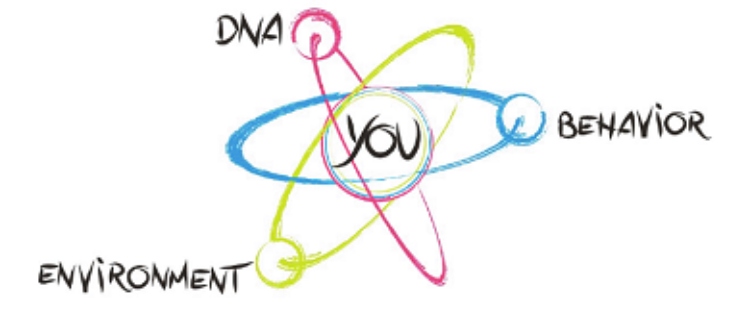Practical Psychology | Conscientiousness Means Success
Conscientiousness and success, in psychology, the two are almost synonymous. Conscientious people tend to do better in life than those who don’t. This is a millennia old truth, yet it is only in the past century that psychology has been able to accurately measure it.
So, what is conscientiousness? Well, it’s forgoing the pleasure of the moment in order to reap a greater reward in the future. It’s sacrificial behaviour. Saving money is a good example of a good sacrifice. Going to bed early, rather than sleeping in, is another.
Conscientiousness
Conscientiousness is a personality trait inherent to everyone. Professor Brent W. Roberts, a personality psychologist who specialises in this trait, defines it as ‘individual differences in the propensity to follow socially prescribed norms for impulse control, to be goal-directed, planful, able to delay gratification, and to follow norms and rules.’
In a study designed to assess conscientious behaviours, those high in the trait ‘set a timeline for getting a project done; clean their bedroom; get to appointments on time; pay bills on time; and work or study long hours’
Unconscientious people ‘miss appointments; leave dirty clothes on the floor; turn in assignments late; miss a bill payment; break daily routine; and spend more money than they have’.
As with all personality traits in the Big Five, or the OCEAN model, a person is neither ‘conscientious or unconscientious’. Traits are best thought of as a bipolar continuum from 0 to 100, with most people falling somewhere in the middle.

Conscientious people tend to be happy, most likely due to its relationship with work. This is in line with Freud’s assessment that ‘to love and to work’ are fundamental to a human’s well-being. Incidentally, this trait has immense predictive power.
The Predictive Power of Conscientiousness
Conscientiousness is the best predictor for long-term success. In terms of school, aside from general intelligence, it is the most important factor when predicting academic performance. In university, it is of equal importance to IQ.
In the workplace, it is the best predictor for job performance. Furthermore, conscientious people have greater occupational success and earn higher wages across their career span. At home, it is the best indicator that a romantic relationship will work out and last long.
Conscientiousness predicts the quality of one’s physical health, the onset of Alzheimer’s disease and length of one’s life. With regards to mental health, it predicts all major mental illness, especially externalising disorders, such as antisocial behaviour disorder.
Low conscientiousness is also a better predictor of crime than socioeconomic status. Almost all antisocial behaviour disorders are associated with being low in conscientiousness. In short, conscientious people live well, while unconscientious people do not.
The Stanford Marshmallow Experiment
There’s a little experiment that demonstrates the difficulty associated with sacrifice. The Stanford Marshmallow Experiment tests a child’s ability to delay gratification. It presents the child with a marshmallow and gives her two options.
The child may eat the marshmallow now, or, wait fifteen minutes and eat two then. Essentially, the experiment is testing the child’s ability to delay gratification, the essence of sacrificial behaviour. Furthermore, children who delayed gratification tended to do better in school later in life.

Now, this experiment has become contentious in recent years. This is because when you control for socioeconomic status, the relationship between the ability to delay gratification and future success is made somewhat insignificant.
However, as conscientiousness informs socioeconomic status, its conceptual links to delayed gratification are strong, and its mostly heritable, it seems reasonable that is has a significant part to play in this particular experiment.
Is Conscientiousness Genetic?
The caveat with conscientiousness, and all personality traits, is their underlying biology. Traits are roughly 40% genetically acquired, while another 5% is attributable to family environment, 35% to a nonshared, or peer, environment and the remaining 20% to measurement error.

This appears to support a rather pessimistic, deterministic philosophy; the ability to sacrifice is genetically coded, therefore someone’s propensity towards success is the product of their parents’ genomes.
Worse still, personality traits have traditionally been thought to remain stable across time. While traits like conscientiousness gradually increase across time, most older personality psychologists are opposed to the idea of trait change.
[perfectpullquote align=”full” bordertop=”false” cite=”” link=”” color=”#1AC4A8″ class=”” size=””]Suggested Reading: Feel Good Science: The Psychology Behind Gratitude[/perfectpullquote]
This paints a rather grim picture; you’re either able to sacrifice, or you’re not, and there is nothing you can really do to change that. Fortunately, modern personality psychologists are much more optimistic about the science of trait change.
Changing Conscientiousness
Despite the adamance of personality psychologists regarding the stability of personality traits, clinical psychologists have been changing traits for decades, particularly trait Neuroticism. This is essentially one’s predisposition towards negative emotion; anxiety and depression.
Therapists have been indirectly treating this trait for decades. Retroactive analysis shows that therapy has been successful in reducing trait Neuroticism, in some cases by half a standard deviation (a lot) in about four weeks. Trait change is extremely achievable.
Prof Roberts, the leading social scientist researching trait change and conscientiousness, has proposed that improving conscientiousness is as simple as consciously performing conscientious behaviour until that behaviour becomes automatic, or unconscious. The Self Authoring Suite aims to enable individuals to achieve this change.

In summary, successful people are high in trait Conscientiousness. As this trait predicts success in all major life outcomes, it is of major importance. While traditional psychologists treated the trait as fixed, more modern scientists posit that practise makes perfect.
